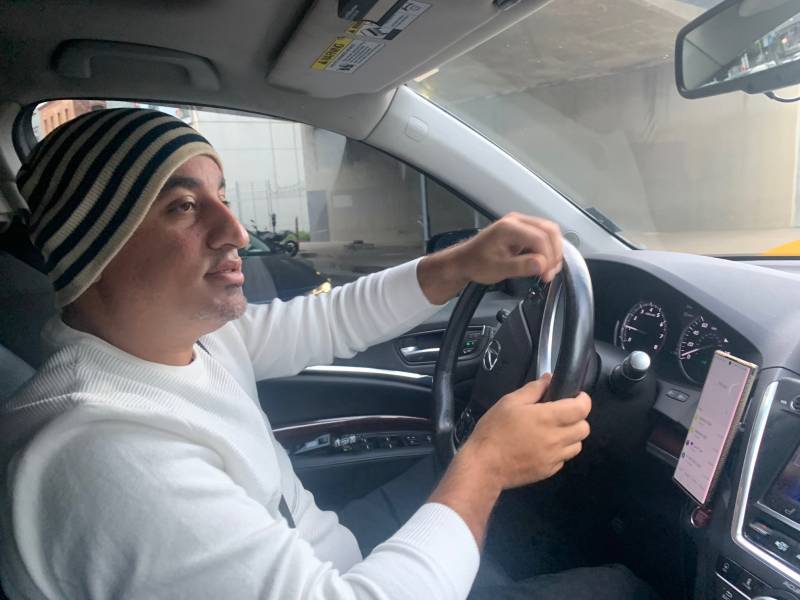According to statistics from Uber and Lyft, there could be up to 2 million drivers nationwide. Some of these workers have started organizing for higher wages, benefits and enforcement of Assembly Bill 5, which would make them employees in California.
Big unions like the Teamsters and Service Employees International Union have gotten involved, especially through supporting the launch of a San Jose nonprofit called Gig Workers Rising. While drivers embraced the attention of these big unions at first, recent news has made some drivers, like Al Aloudi, suspicious of their motives.
Aloudi has become a kind of godfather for Bay Area drivers. He’s been working for Uber and Lyft since 2013. Quickly after he got on the road, he started organizing drivers.
Aloudi’s organizing work began at a Yemeni community center — he said a lot of Bay Area drivers are Yemeni, like him. At the center, he saw that his fellow drivers needed help, so he started getting their numbers and setting up groups on WhatsApp or Facebook for drivers to talk through their problems.
These groups were filling in for what Aloudi said the companies weren’t doing. Sometimes it was something simple — like a driver got a flat tire or had a dead battery. Other times he and others in the group would help drivers with something serious — like when they got kicked off the app or when they were assaulted by a passenger.

